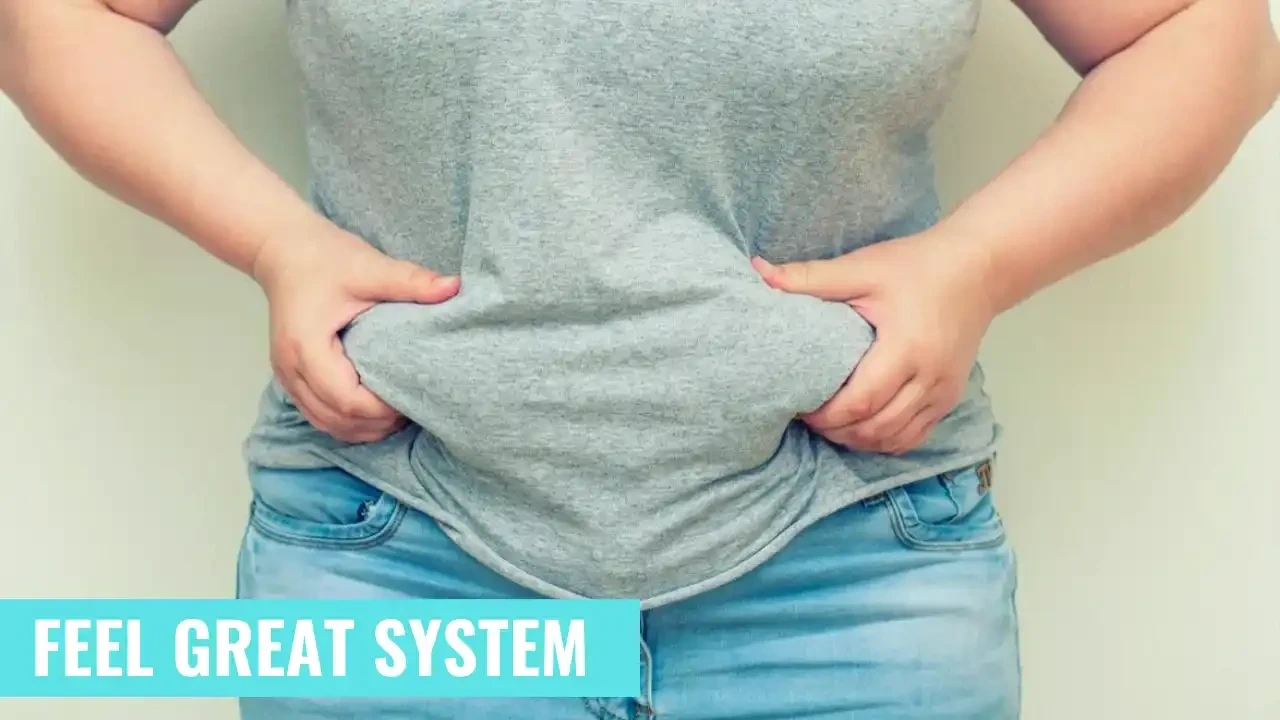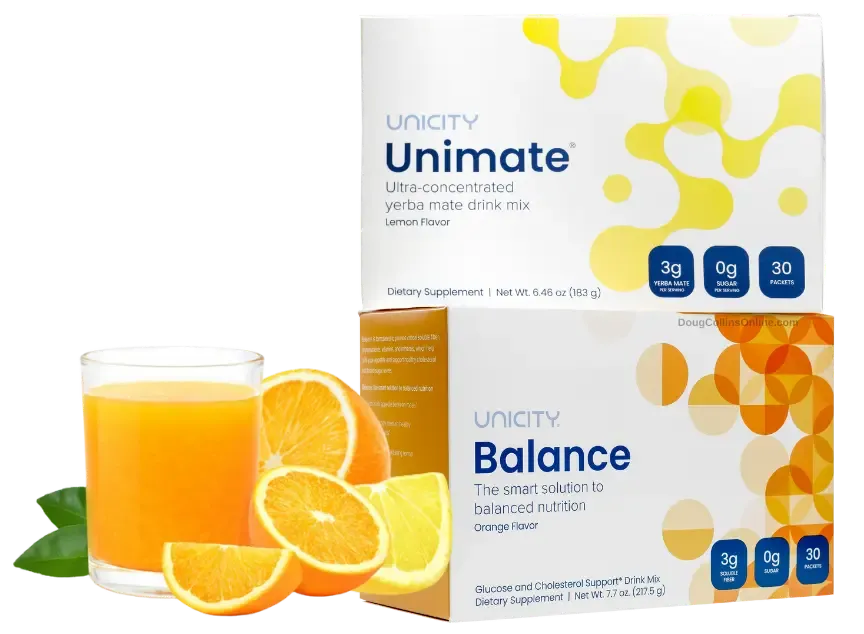Visceral Fat: What Is It, the Dangers & How to Lose It - The Feel Great System
Oct 20, 2021
Visceral body fat, also known as 'hidden' fat, is fat stored deep inside the belly, wrapped around the organs, including the liver and intestines. It makes up about one tenth of all the fat stored in the body. Most fat is stored underneath the skin and is known as subcutaneous fat.
Everyone has some, especially those who are sedentary, chronically stressed, or maintain unhealthy diets. A different type of fat — subcutaneous fat — which builds up under the skin, has less of a negative impact on health and is easier to lose than visceral fat.
How We Get Visceral Fat
People gain abdominal fat for a variety of reasons, including eating lots of processed, simple carbohydrates and high sugar foods combined with an inactive lifestyle is thought to be the main culprits. The more often and longer that blood insulin levels remain high, the more likely a person is to accumulate excess body fat and to battle weight problems.
The Risks of Visceral Fat
Visceral Fat is associated with a number of negative effects on health, including cardiovascular disease, types 2 diabetes, and increased blood pressure. Visceral fat is considered toxic in the body because it’s capable of provoking inflammatory pathways, plus signaling molecules that can interfere with the body’s normal hormonal functions. In fact, it acts almost like its very own organ since it’s capable of having such a large impact on the body.
The deposits of fat act similarly to an organ, and excrete substances that affect the surrounding organs. It's thought that abdominal fat may be particularly risky because it's near the main vein that carries blood into the liver from around the intestines. Some of the substances excreted by the fat, particularly loose fat cells, can get taken into the liver and then influence the levels of fat in the liver, creating Fatty Liver Syndrome as well as imbalance with the blood lipids and cholesterols.
What We Can Do About Visceral Fat
Research has shown that when you improve your dietary intake, you mostly lose white fat, which is different than visceral fat and tends to be lost or gained evenly all over the body. You’re more likely to lose visceral fat when you do a combination of the following — which are all important to both burn fat and improve your overall metabolic health.
1. Enjoy Low Glycemic Foods
In terms of diet, a meal plan that follows the a glycemic index which includes lots of vegetables which are high fiber, and lean meats can help with losing visceral fat. Reduce the sugar and refined carbohydrates - those foods that come in boxes and bags that have bar codes on them.
2. Prioritize Protein
Proteins are the foundation for muscle, bone, skin, tendons, ligaments, hormones, energy, the immune system—the list goes on and on. Proteins are made up of smaller molecules called amino acids. Think of these amino acids as Lego pieces that can be broken down and built back up as different proteins that can be used throughout the body. This is often why we refer to Protein as the building blocks for our bodies.
Proteins also helps with satiety. If you think of your body and metabolisms as a campfire, eating protein would be like putting a large log on the fire that large log will provide heat or energy for a substantial period of time. In other words, protein provides your body with long-lasting fuel, a crucial factor when trying to follow the 4-4-12 eating schedule.
Proteins help increase energy expenditure. Proteins can do this in two ways. First, proteins have a higher thermic effect than carbohydrates and fats do. This means that when you eat protein, your body burns more calories to break down the protein than they would to break down other food groups. Second, proteins help maintain and build lean muscle, and people with more lean muscle burn more calories in a day.
Use Unicity Complete protein as a meal replacement as it contains 100% of many essential vitamins and minerals, and contains 4g fiber, so not only is it a great way to up your protein intake, it’s also a complete meal replacement. Drink it in the morning instead of eating a processed carbohydrate based breakfast to feel less hungry and more energetic throughout your day.
3. Intermittent Fasting
Intermittent Fasting (IF) is an eating pattern that cycles between periods of fasting and eating. It is more than a passing health trend—it’s a way to support the way our bodies naturally work. As part of following The Feel Great System we recommend following the 4-4-12 approach for best results, because it fits most lifestyles. What this means is to not eat 4 hours between meals and 12 hours from your last meal to the first the next day.
4. Exercise Regularly
Exercise helps us balance insulin and makes our cells more primed for using glucose. This is crucial considering that as more fat is packed away on the body, it interferes with insulin uptake into our muscle tissues.
The question about what is the best type of exercise to do is one that is asked by everyone. Should it be running or walking? Lifting weights in the gym or body weight exercises at home? The answer is simple: The best exercise for your body is the one you enjoy doing and will commit to. The most important component of exercise is consistency and when you find something you genuinely enjoy you increase the chances of sticking with it.
Keep in mind that when you consistently do the same thing for exercise, your body will likely get adjusted to your routine and learned to conserve energy while doing those particular activities. To help break through a plateau, change up your routine. If you’ve been walking for exercise, try riding a bike. Try a new exercise video or class at the gym. If you continue with some of the same activities as before, intensify your efforts. If you haven’t been doing any exercise to build muscle, consider incorporating some resistance training.
5. Drink More Water
Water is an important aspect of healthy living. It makes up a large percent of your body (around 60%). Millions of chemical reactions happening every minute in our body are dependent on water. Without water, your entire metabolism gets thrown out of balance.
Water is also important to be able to cool your body when we start to get too hot. If we don’t have any water to sweat out and cool ourselves down, your body can overheat and even hurt itself.
Water is a big portion of your blood. When we start to get dehydrated, especially during exercise, your body takes water from your blood to use as sweat. This decreases your blood volume and requires your heart to work even harder to pump blood to your working muscles.
Water helps your joints. Properly hydrated tissues allow your joints to move, slide and glide easier. Our bodies also need water to make synovial fluid, your body’s version of WD40 for your joints.
6. Get Enough Sleep
Sleep matters when it comes to weight loss, sleep impacts your hormones, and hormones impact weight loss. An average of 7-8 hours a night is ideal. If you’ve been getting less than that, or if you often wake up not feeling rested, try to make a greater effort. Set a goal to begin getting ready for bed at a certain time so that you will be able to get a minimum of 7 hours a night.
7. Manage Your Stress Levels
Stress levels also impact hormone levels, which again, affect your ability to lose weight. If you can cut out or cut back on any time commitments that aren’t top priority, that would be a first step. After that, work on better managing your stress by activities such as: writing in a journal, a weekly yoga class, meditation, etc.
8. Keep Going - With Time The Results Will Come
The body resists weight loss, as it is designed for survival. So slow results can be a normal part of weight loss. If what you have been doing for weeks at a time has produced consistent results, keep going! It’s possible that you will see the changes you’re looking for in a matter of days.
Remember that there is no deadline for your weight loss goal. When you lose weight at a healthy rate, you are more likely to keep it off. So keep going at a healthy pace, and you will accomplish your goals!
More health articles:
- Intermittent Fasting For Weight Loss & Better Health
- 11 Reasons Why You Aren't Getting The Results You Desire
- Hack Your Metabolic Flexibility
- Carbs Are Not The Enemy
- Modern Food Environment Causing Diabetes Crisis
- Insulin Resistance: Most Undiagnosed Conditions in the World
- Insulin Resistance: The Epidemic That Is Destroying World Health
Feel Better Than You Have In Years!



